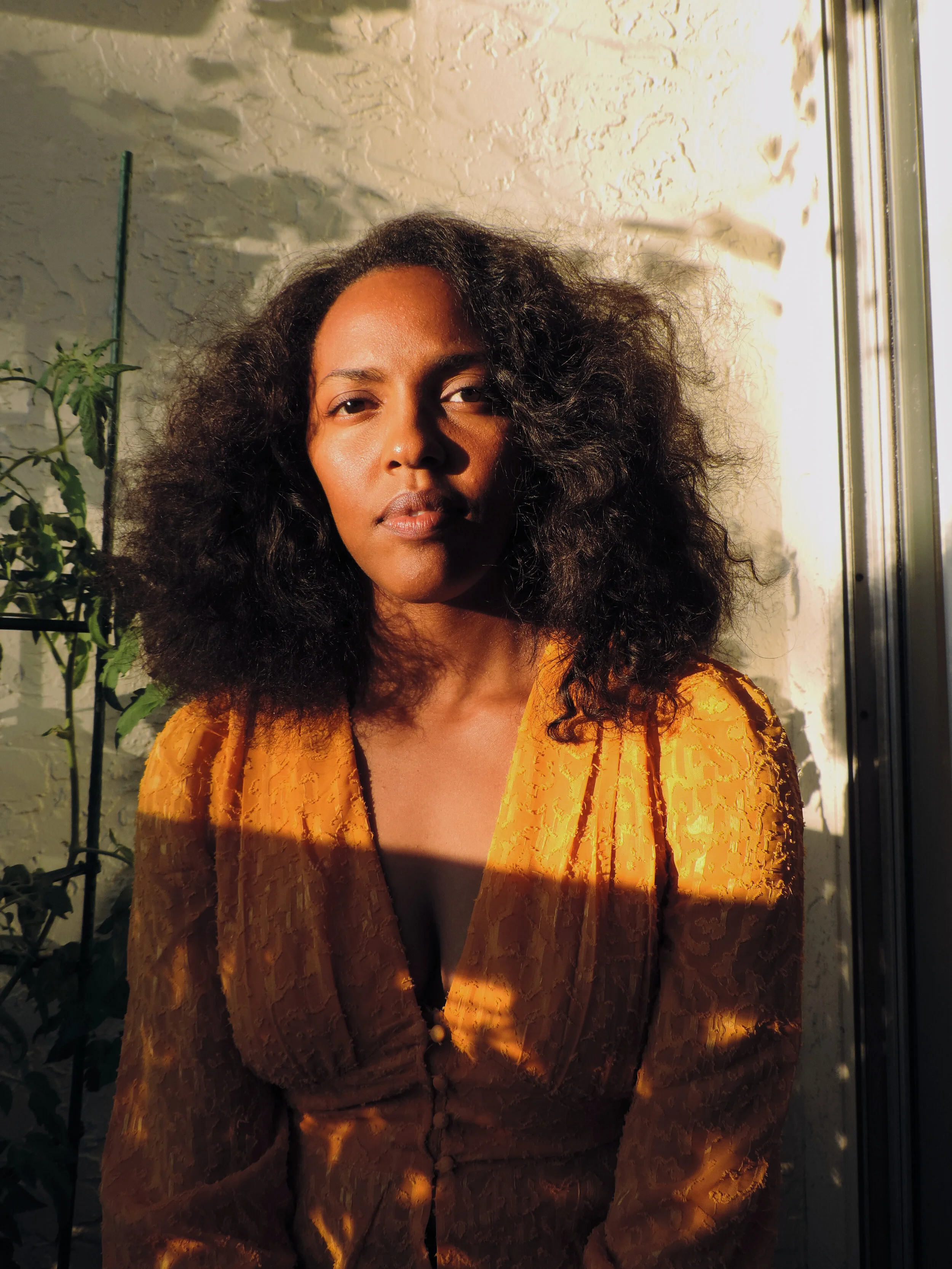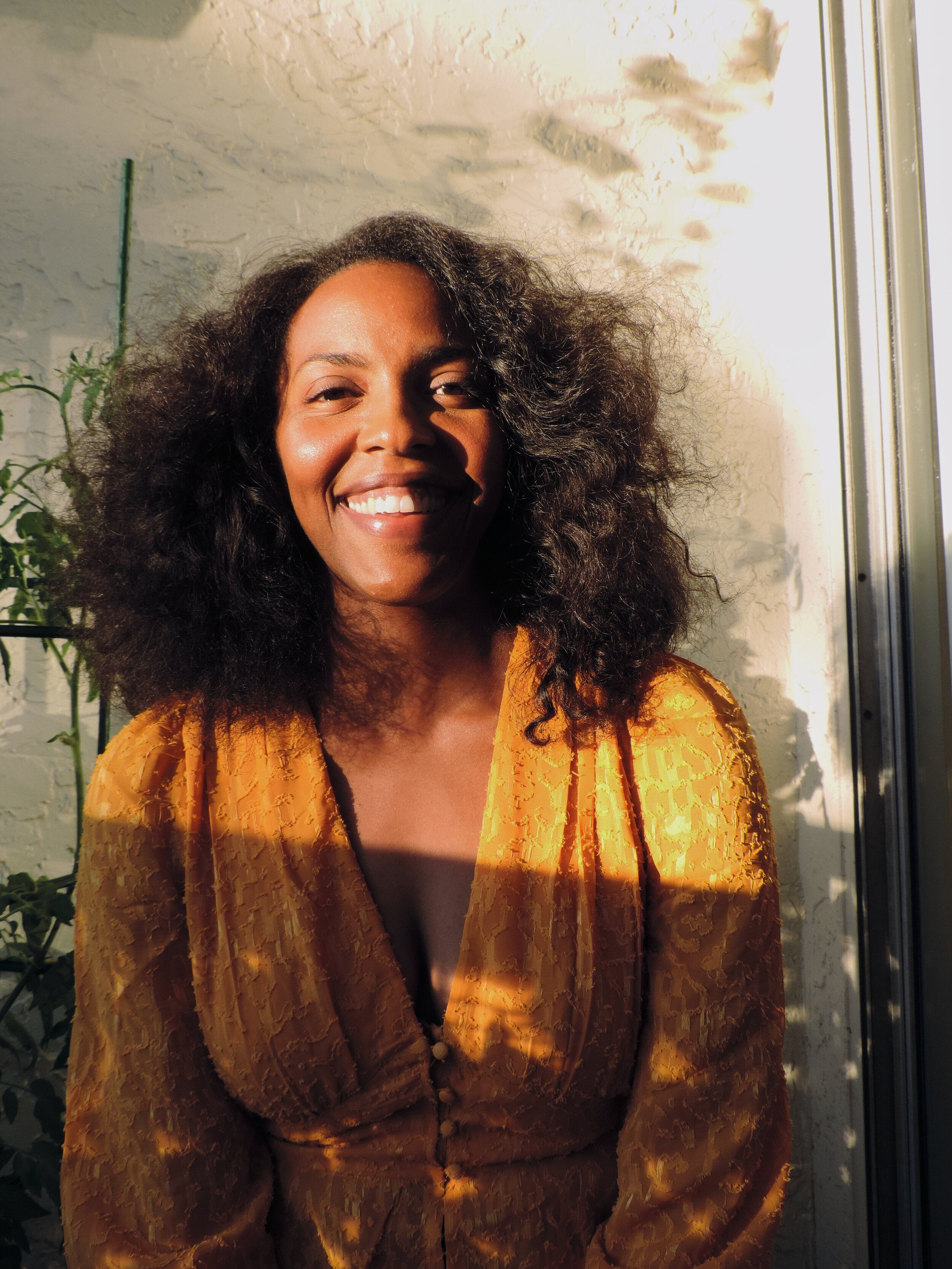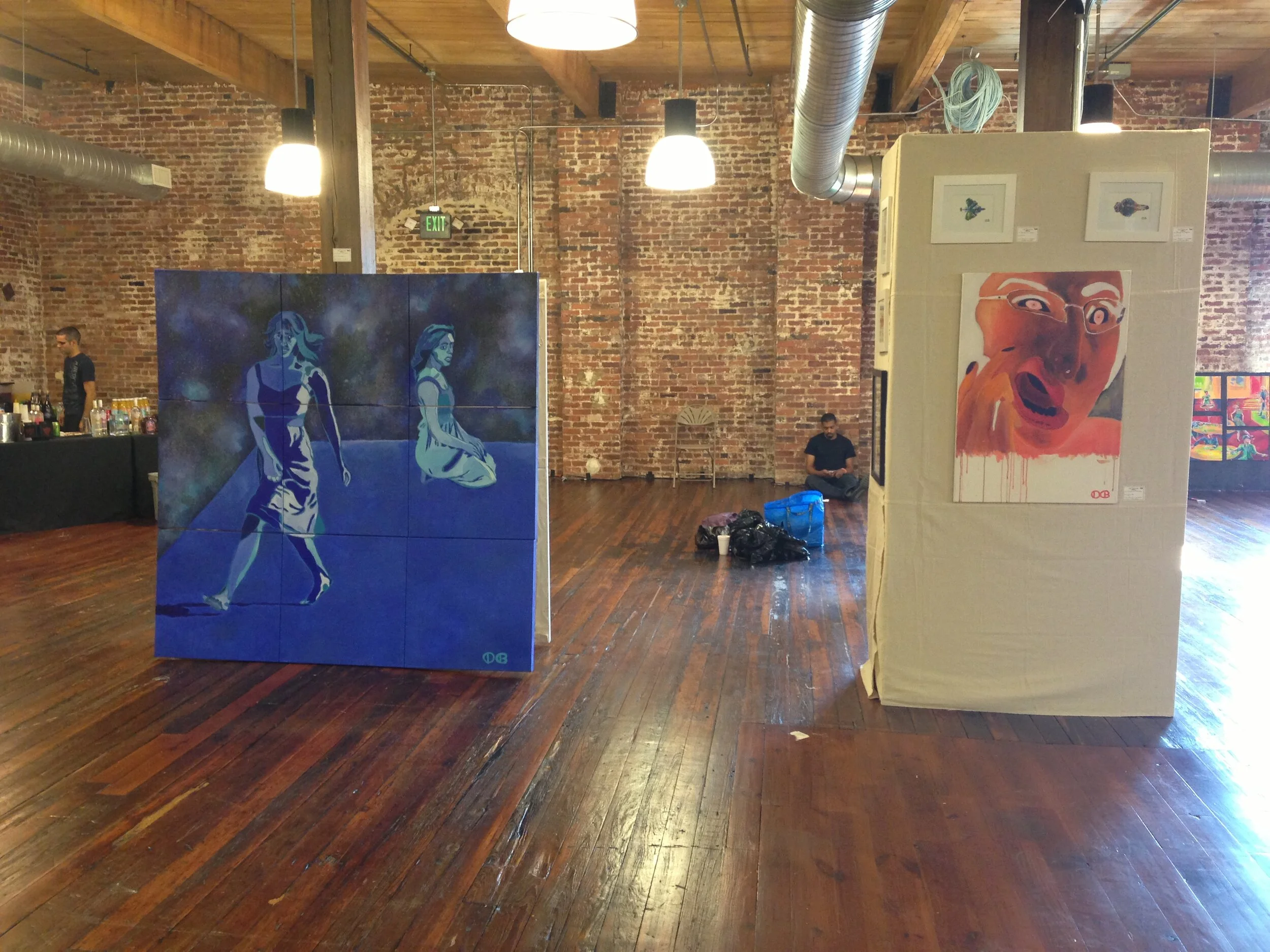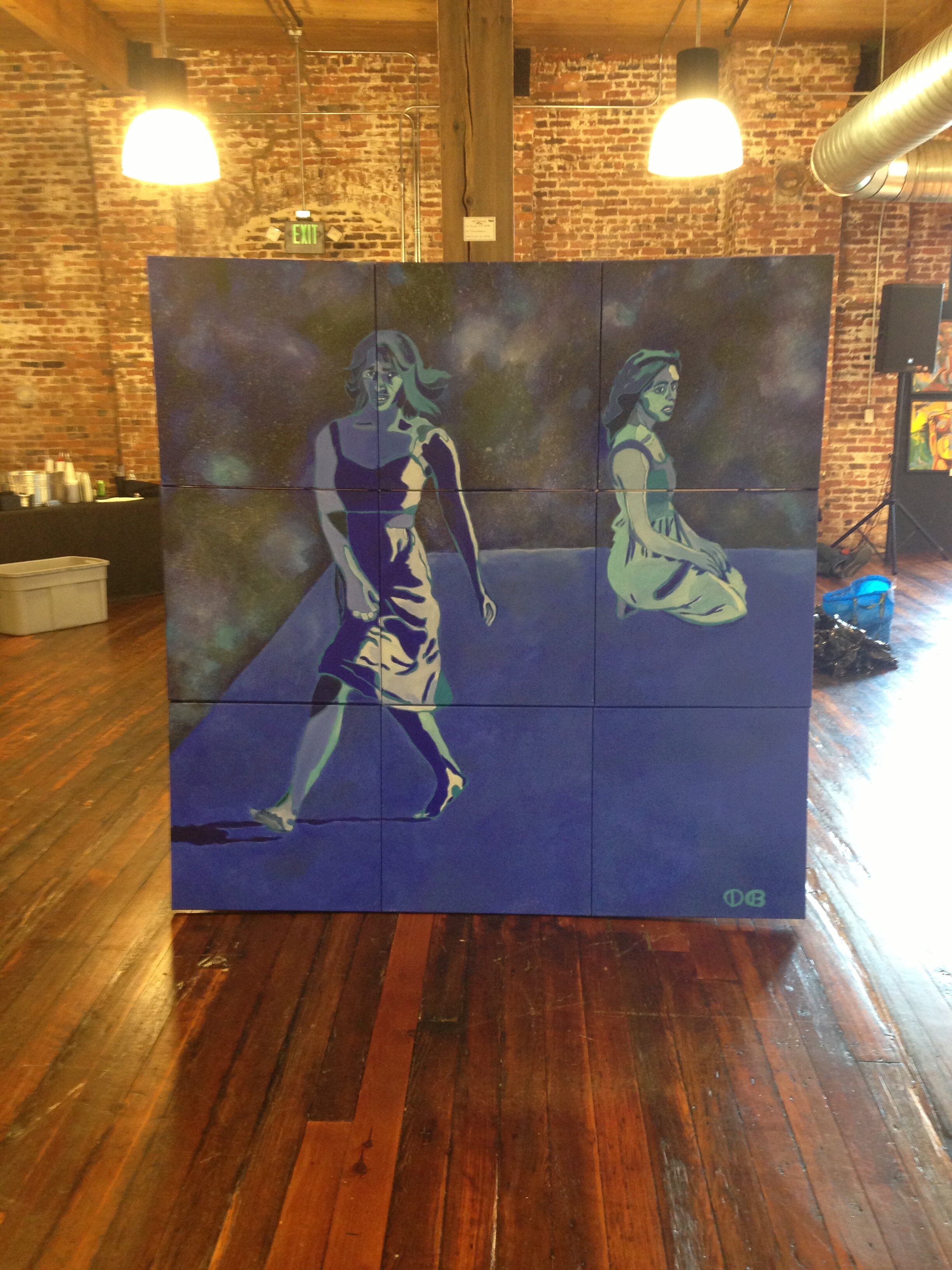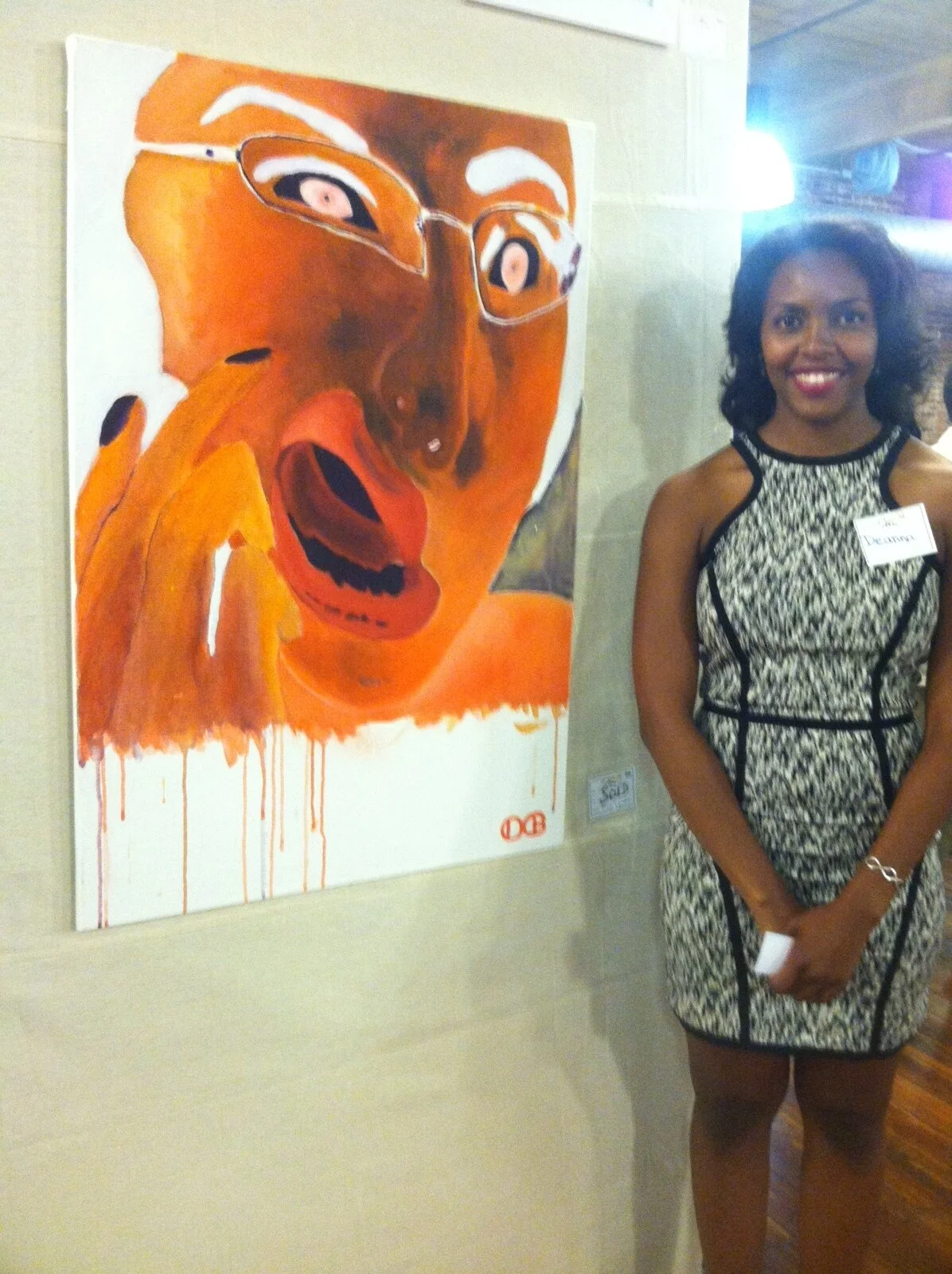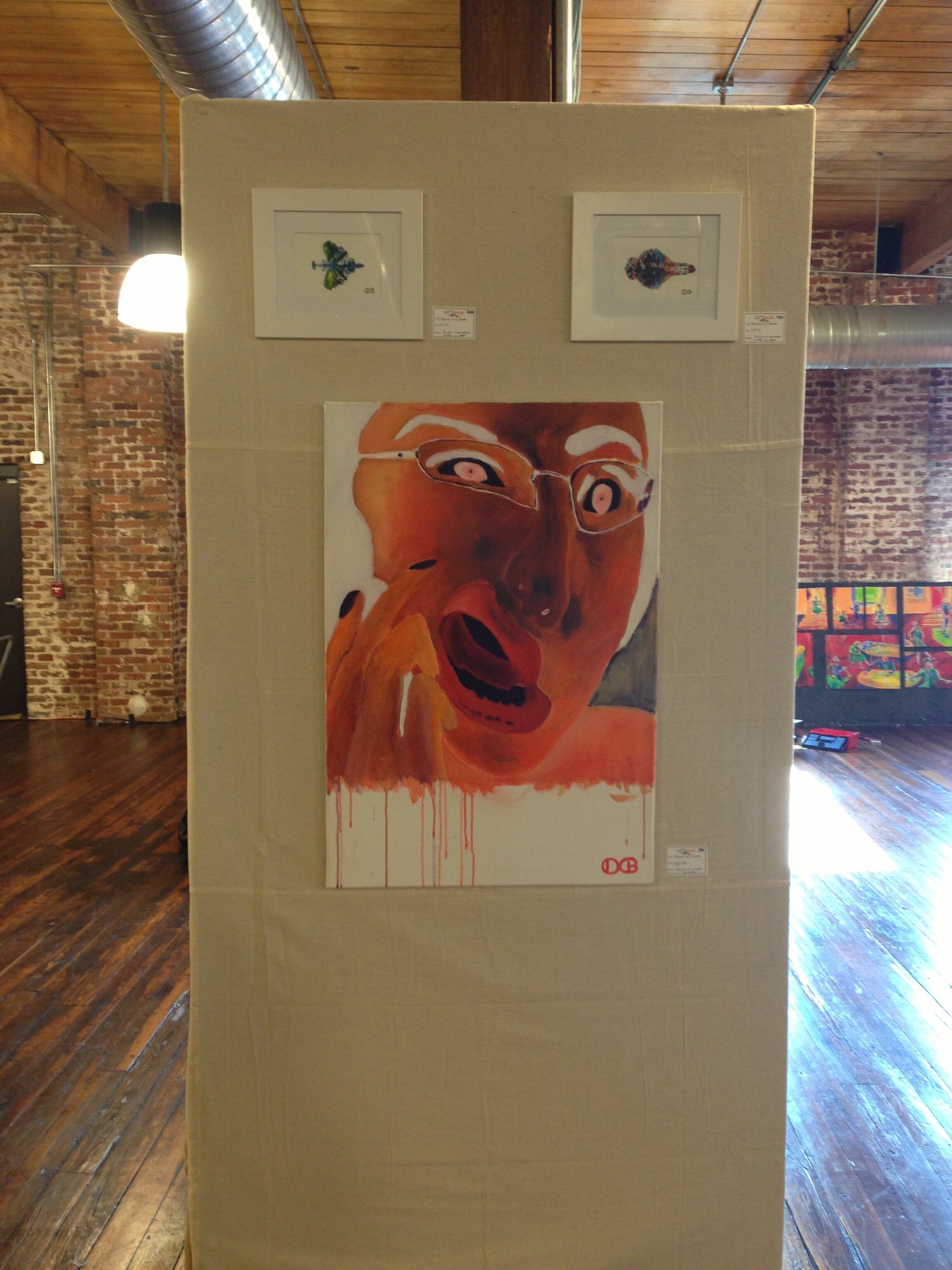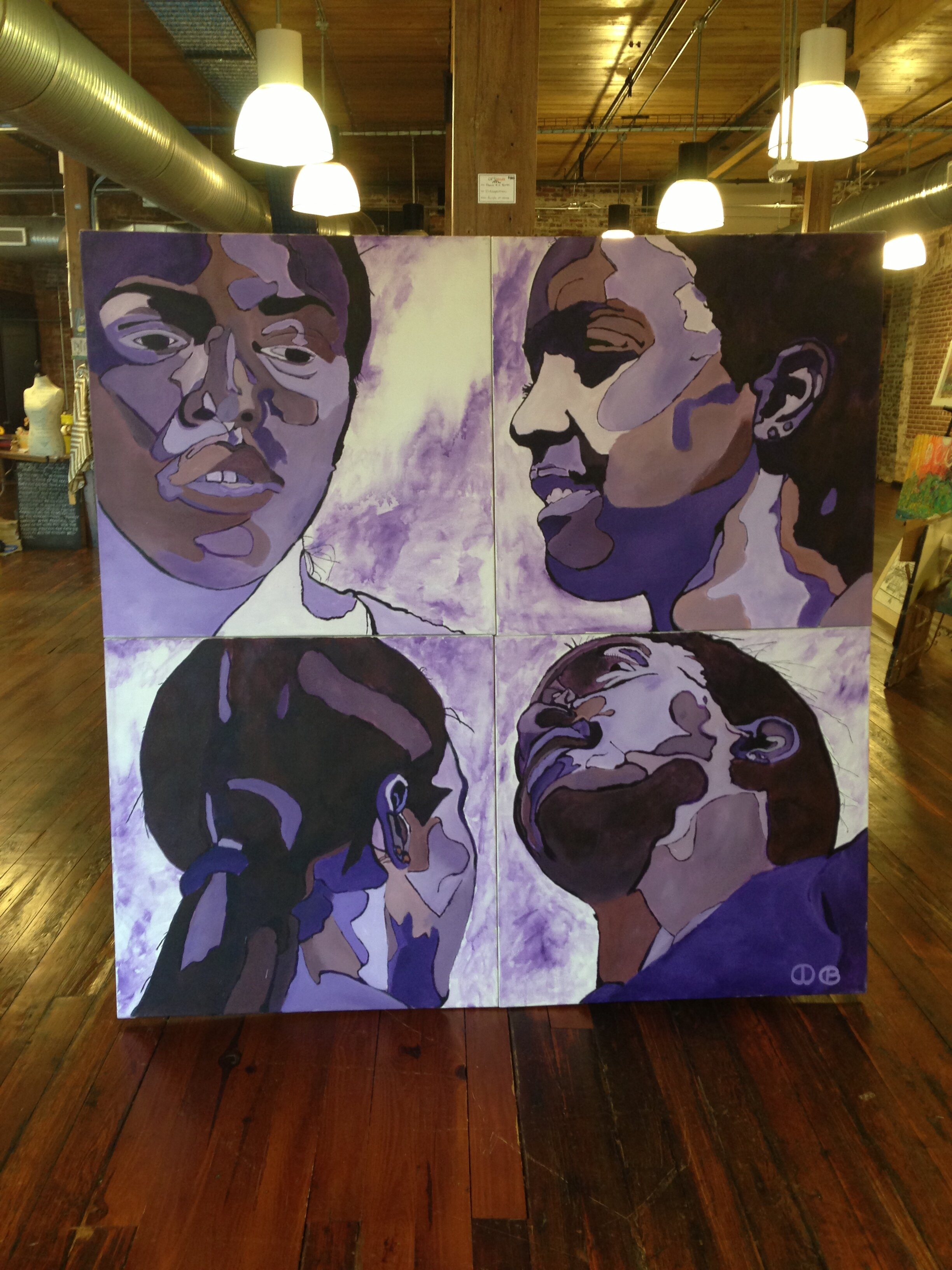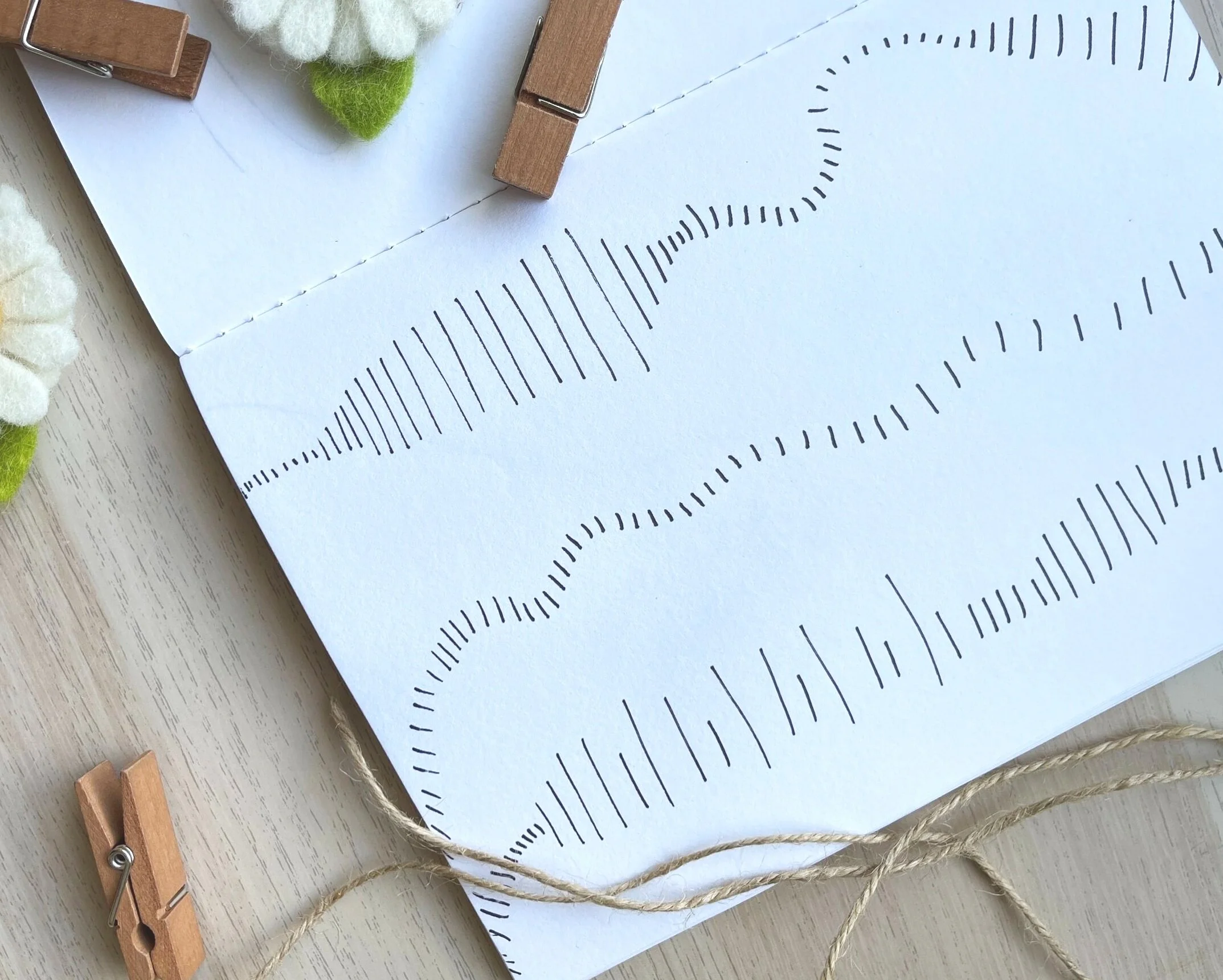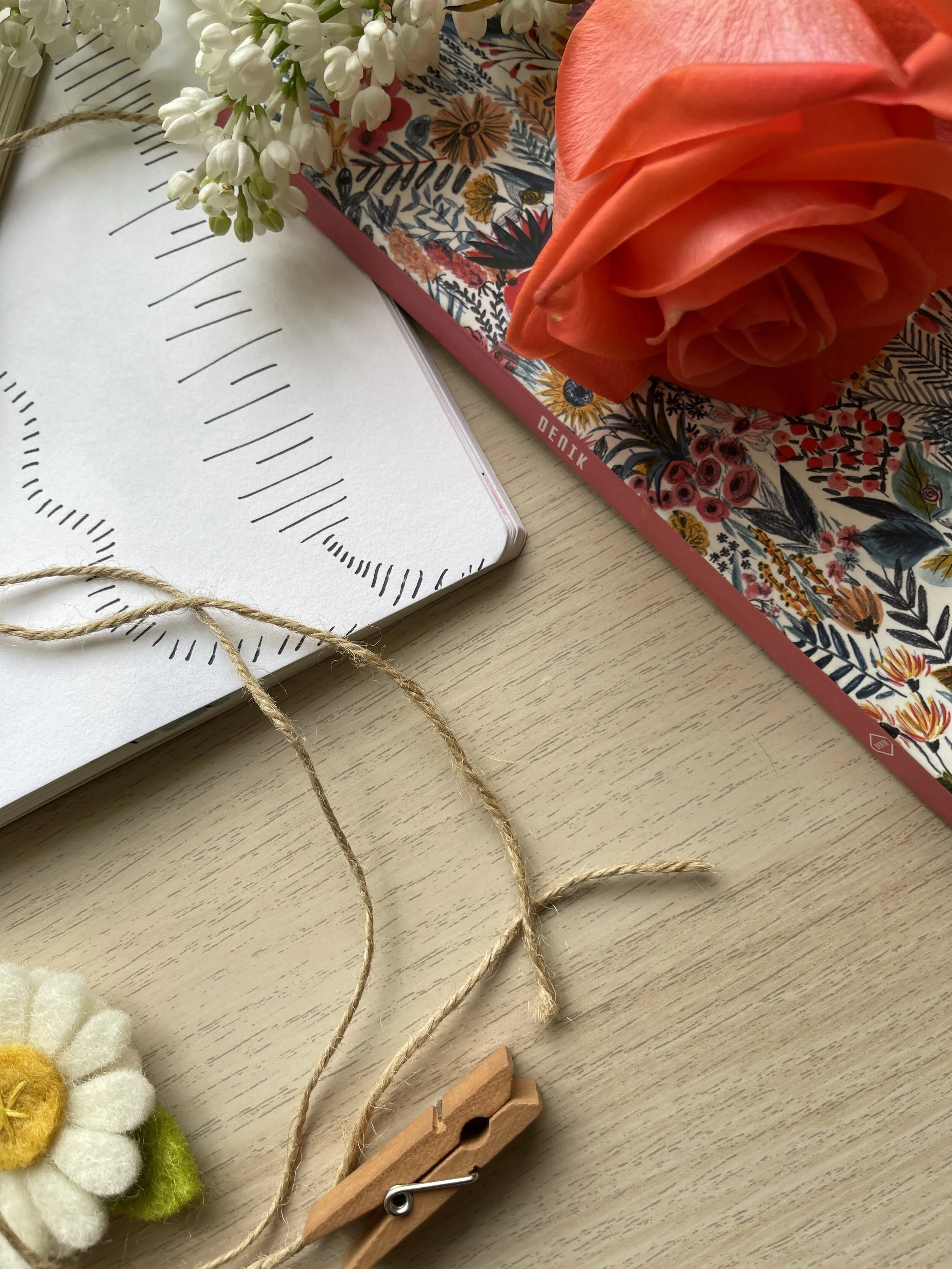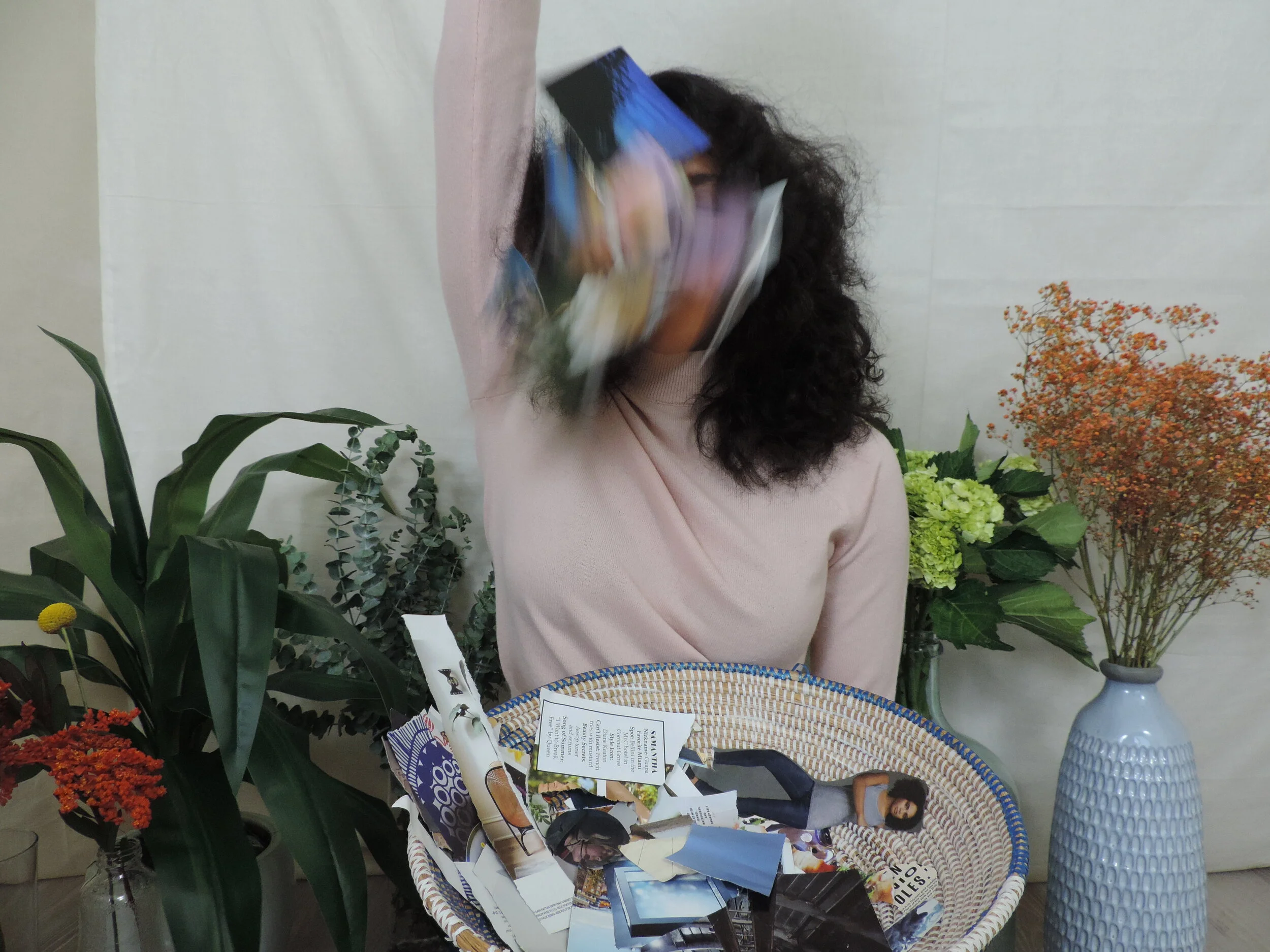The most asked questions
The most asked questions - about my journey and my work
I get a lot of questions about why and how I became an art therapist and what my life is like as an art therapist. So, I wanted to share some of the questions I get asked most often during interviews and talks.
“If we cannot fully and safely express ourselves, our mental health may suffer.”
On your art website, you state “Our mental health cannot thrive under the suppression of self-expression.” I love that! Can you speak more about that?
Our identity, our concept of self, is connected to our mental health. How we show up in the world, how we express ourselves is reflective of our lived experiences and our humanness. If we cannot fully and safely express ourselves, our mental health may suffer. Think of a time when you felt self-conscious about something and how that may have led to experiences of self-doubt, anxiety, stress, or even fear. If we are walking around all day carrying these thoughts and feelings, well, it’s taking a toll on our mental health. To thrive we need spaces where we don’t have to suppress who we are. We space where we can show up fully just as we are. This is especially important for Black women and women of color.
“Art was always been there to help me cope. Art was like that emotional release valve. ”
What brought you into this field?
Well, I first learned about art therapy in college. I was in the sculpture room on Spelman’s campus and my sculpture professor, the late, Frank “Toby” Martin, asked me if I had heard about art therapy. We talked a little about it and then I quickly went to find a book about it. Think the first book I got was the Art Therapy Sourcebook by Cathy Malchiodi. I was also majoring in psychology and minoring in art - so art therapy seemed like the perfect blend of two things I was really interested in and passionate about.
Also, around that same time, I was struggling with anxiety and depression - this was something I struggled with throughout my teens and early 20s. Art seems like the one thing that kept going. I began to make the connection that art had been my source of release and healing throughout my life. I was a dancer from age 3 through college. I was always immersed in the visual arts and singing as a kid in school and at home. So, it’s like art was always there to help me cope. Art was like that emotional release valve.
Then, my professor and mentor Dr. Arturo Lindsay invited me to participate in the senior art show which was usually just for art majors. I showed 3 large, self-portraits painted in acrylic. You can see them below. This was my first time having a platform to share my art, discuss the meaning of it, and talk about how art helped me through some rough patches with my mental health. It was a really powerful experience that really propelled me towards the field of art therapy even more.
How and when did you start your business?
I began renting small space hourly with a colleague and saw a few clients each week (evenings and weekends). I still worked a full-time job, teaching art, at that time. I was burnt out - truly. No one can fully prepare you for the stressors that come with being a teacher. And I felt so disconnected from what I really wanted to do which was to be an art therapist.
So, in 2016, I founded Artspiration LLC to offer art therapy services and art kits for self-healing. Starting slowing allowed me to learn and solve problems as I went along. Things just continued to evolve and ALLUMA bloomed out of Artspiration to meet the needs I was seeing in Black communities and communities of color, particularly among young womxn of color. Around 2019 there were a lot of clients coming my way seeking a Black, female therapist specifically and these womxn (and a few men) were very drawn to the idea of using art in therapy. I saw that people were needing a healing space that was accessible, decolonized, inclusive, and creative. ALLUMA is that space.
“I saw that people were needing a healing space that was accessible, decolonized, inclusive, and creative. ALLUMA is that space.”
“My mind sometimes has difficulty disconnecting completely. ”
How do you balance your work and life?
You know, honestly, I think finding that balance is always a work in progress. Work-life balance requires adaptability, being able to shift and change when needed, especially for an entrepreneur.
I wear A LOT of hats! When I began my solo practice in 2016, there was so much I had to learn from tax stuff, accounting, marketing, billing, and scheduling. Building a client base takes time. I was glad I chose to start my solo practice slowly. I still pretty much do all the business operations myself. So, I literally schedule time off and try to truly honor it as time off. I zone my space to encourage movement and creativity. I leave art materials out and my yoga mat out for moments of relaxation, stretching, and reflection throughout the day.
When it’s time to relax and chill, I relax and chill. My mind sometimes has difficulty disconnecting completely. I am creative! lol My brain is always thinking and creating something. You know, I think that’s why it’s so important to do the work you love. When you enjoy what you do, work can feel more like play. But, ya, I think I’m also recognizing the value of asking for help and letting go of control. With help on daily operations, I can focus more fully on the creative aspects of ALLUMA and seeing my clients - the parts I enjoy the most!
Do you make your own art?
I do! Finding work-life-art balance isn’t always easy. But having time for my own art-making is important. Art has always been my preferred way to express and process my thoughts and feelings. My go-to art is usually in a small sketchbook. I enjoy mixed media - using collage, watercolor, and fabric/textiles. I also like to make sketchbooks, sew, create floral designs, cook and bake and I love gift-wrapping! The last series I created to exhibit was Ruminating, a series of self-portraits photographed to document moments of rumination and healing. I really enjoy being deeply immersed in the creative process - like spending days alone just making art. But there’s not always time for that. In those moments, I am gentle with myself, and, I turn to the sketchbook or my other interests for an outlet and release.
“Art has always been my preferred way to express and process my thoughts and feelings.”
You can find the recordings of my interviews and talks, here.

